上市文化公司版权管理信息系统的设计(Node.js,Javascript)
无需注册登录,支付后按照提示操作即可获取该资料.
上市文化公司版权管理信息系统的设计(Node.js,JAVAscript)(任务书,开题报告,论文11000字,参考代码)
摘 要
如今盗版猖獗,即使国家已经出台相关政策去抵制盗版却还是收效甚微。因此,一个具有实效性、权威性和公众认知度的上市文化公司版权管理信息系统就显得尤为重要。本文运用区块链的相关技术和知识,详细论述在该技术下版权维护方面的优越性。系统借助于分布式存储技术,保证了区块链的同步和统一,极大提高了系统数据的安全性。
系统注重版权交易的整个过程,交易时会对交易双方进行全方位的验证,较为安全的加密技术和用户的个人数字签名,确保了交易时的安全性。交易时,运用区块链技术记录下整个交易的过程和细节,并广播全网,使得每一笔交易完全公开透明、可随时追溯全部交易。由于数据是分布式存储的,因此不法分子是无法对信息进行篡改的。基于以上几点的技术实现,真正做到完美的版权维护。
关键词:版权管理;区块链;交易;分布式存储
Abstract
Piracy is rampant today, and even if the country has already introduced policies to resist piracy, it still has little success. Therefore, an effective, authoritative and public awareness of listed cultural companies copyright management information system is particularly important. This article uses block chain related technology and knowledge to discuss the advantages of copyright maintenance in detail. With the help of distributed storage technology, the system can ensure the synchronization and unification of block chain, and greatly improve the security of system data.
The system pays attention to the whole process of copyright transaction, and the transaction will verify both sides of the transaction, and the more secure encryption technology and the user's personal digital signature, to ensure the security of the transaction. When trading, we use block chaining to record the whole process and details of the transaction, and broadcast the whole network, so that each transaction is completely open and transparent, and can be traced back to all transactions at any time. Because data is distributed, it is impossible for criminals to tamper with information. Based on the above several technical realization, truly perfect copyright maintenance.
Key Words: Copyright management; Block chain; transaction; Distributed storage
系统使用Node.js作为开发手段,后台使用Express.js框架,数据库则使用SQLite,语言主要以JAVAscript脚本语言为主。系统中每个功能模块都放置在Express这个框架下的modules的文件中。
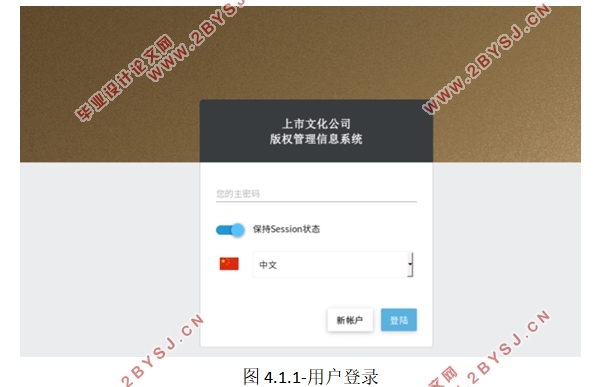
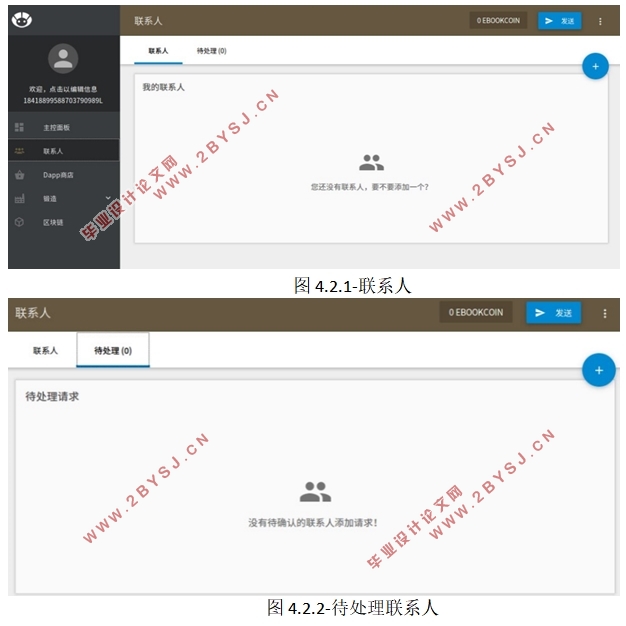
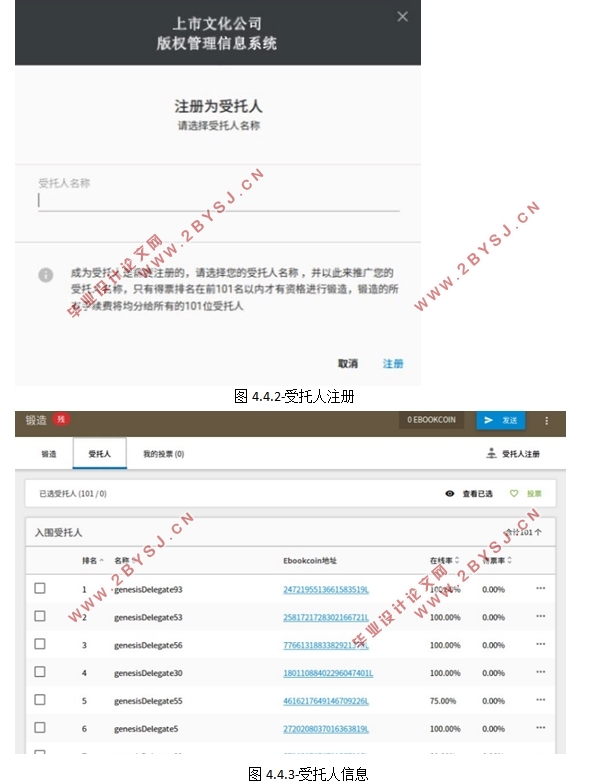
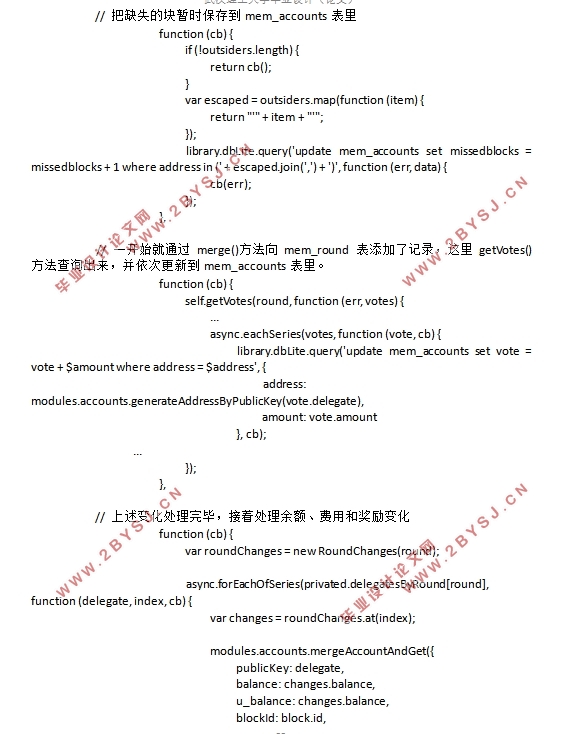
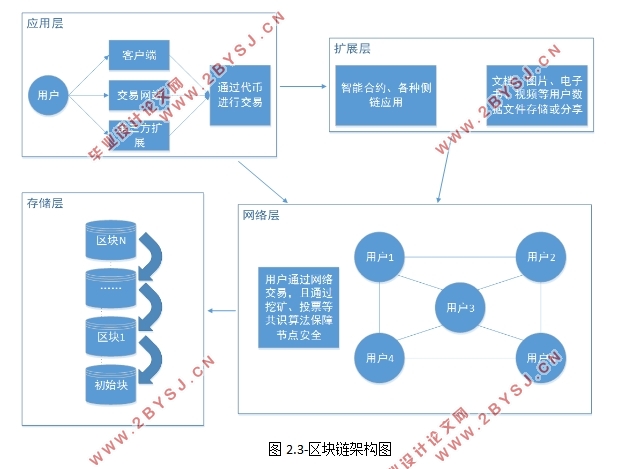
目录
摘 要 I
Abstract II
1 绪论 1
1.1 背景及意义 1
1.1.1 研究的背景 1
1.1.2 研究的意义 1
1.1.3 研究现状 1
1.1.4 目标系统的设计 2
2 区块链技术 3
2.1 基本概念 3
2.2 研究背景 3
2.3 架构层次 4
2.3.1 协议层 4
2.3.2 扩展层 5
2.3.3 应用层 5
2.4 总结 6
3 系统功能结构设计 7
3.1 技术架构 7
3.2 数据库设计 7
3.3 P2P网络构造 8
3.4 加密过程 9
3.5 签名 9
3.6 交易 10
3.7 DPOS机制 10
3.8 总结 11
4 系统实施与测试 12
5 结论 22
6 参考文献 24
7 附录 25
致 谢 38
